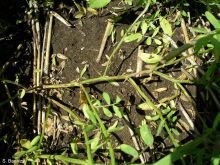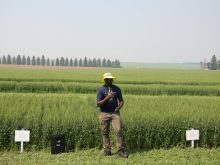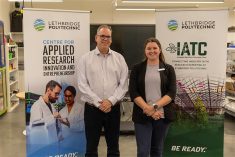Micro-organisms from host plants are used to improve germination, crop yield and ability to handle stress
A new discovery in the world of micro-organisms has potentially big implications for farmers.
University of Saskatchewan microbiologists Vladimir Vujanovic and Jim Germida have discovered a natural way for many crops to better handle stressful conditions such as drought and heat.
The agriculture scientists have found a new group of microbes within plant cell tissues that have unique mechanisms of plant interaction.
They said these fungal microbes, called entophytes, significantly improve seed germination, yield and drought- and heat-stress resilience in varieties of wheat, field peas, chickpeas, corn, canola, lentils, barley and soybeans.
Read Also

India slaps 30 per cent import duty on yellow peas
India has imposed a 30 per cent duty on yellow pea imports with a bill of lading date on or after Nov. 1, 2025.
“By using a new group of micro-organisms found within healthy plants, we are naturally improving the plant’s response to stresses and increasing yields under severe climatic conditions,” said Vujanovic.
He said microbes were lost during plant breeding development, and he wants to explore how and where they went missing.
“We want to take microbes and reincorporate them with their hosts in the production system. This is where I see huge potential,” he said. “Each healthy plant host contains the microbes which genome is nearly 10 times higher than from the plant host.”
Added Germida: “This approach can help farmers and the environment by speeding up the process of variety improvement, developing crops which are healthier and produce higher yields.”
The microbiologists were awarded $1.9 million in Genome Canada funding earlier this year to work with the plant research company Symbiota on a $16 million research project aimed at substantially improving yield and stress resistance in food crops.
They were both presented with the 2015 Innovation Place-Industry Liaison Office Award of Innovation in May to recognize their ground-breaking research.
Vujanovic said successful field trials have been completed in Sask-atchewan, the United Sates and South America.
The Genome Canada project is in the second year of three-year specialized evaluations with the ultimate goal of commercially producing new inoculants.
“This program is really doing that necessary field work to demonstrate that these things will work over a wide range of soils, a wide range of crops, a wide range of climatic conditions,” said Germida.
“For that reason, it’s a game-changer.”
















